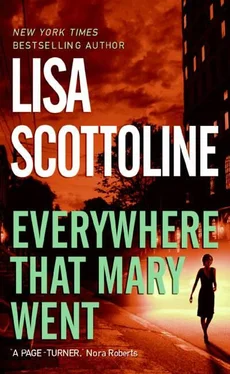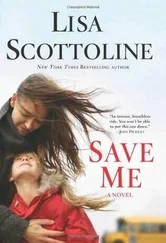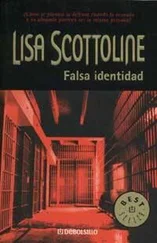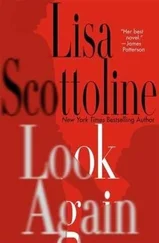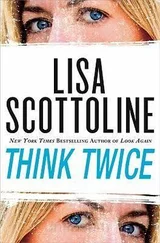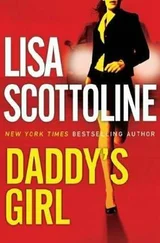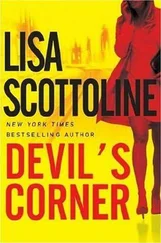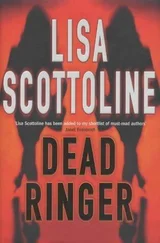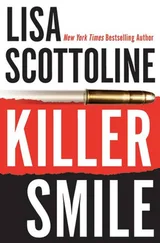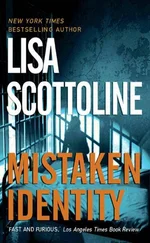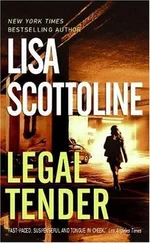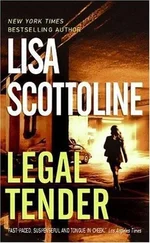Not only that, but both Angie and I had been awarded scholarships to Penn, which was my only hope of going to college. Would the university extend mine until my baby-and Bobby’s, who ignored me from that day forward-was born? Of course not. Even if they did, how would I support a child? My mother couldn’t; her piecework sewing barely bought my uniform and books. My father couldn’t; he was already on disability.
I had no choice.
I found Planned Parenthood in the Yellow Pages and took the bus to center city one Saturday morning, with an Etienne Aigner wallet full of confirmation money. The abortion would cost the $150 earmarked for a white ten-speed, but I was putting away childish things. Of necessity.
When I got to the clinic, I filled out some forms, on which I lied about my age and changed my name. I told them I was Jane Hathaway, after Nancy Kulp inThe Beverly Hillbillies, because she seemed like such a classy lady. Then I was taken to see a counselor, a black woman named Adelaide Huckaby, who wore an African dashiki. Her nappy hair was close-cropped, revealing a marvelously round head, and her eyes were a dark brown, like her skin. We talked for a long time, and she gave me a warm hug when I cried. “You want to think about it some more?” she asked. “You can change your mind, even now.”
I said no.
Adelaide came with me into what they called the Procedure Room, and we waited for the doctor together. I was lying flat on a skinny and unforgiving table in a hospital gown, with my knees supported from underneath. On the ceiling was a circle of fluorescent light. I tried not to think of it as an all-seeing eye, looking down on me from above, witnessing everything in mute horror.
“I see you get those blotches on your chest,” Adelaide said softly. “My sister gets ’em too. Only you can’t see ’em so well on her.”
I smiled.
“It’s all right, baby. Everything’s gonna be all right.”
Then the doctor came in. He wore granny glasses and gave me a brief hello before he disappeared behind the white tent covering my knees. Adelaide took my hand and held it. She seemed to know I needed a hand to hold on to, and hers was strong and generous. While the doctor worked away, Adelaide described the procedure for me, her voice quietly resonant.
“Now he’s inserting the speculum, so you’ll feel some coldness. You know what a speculum is, baby?”
I shook my head, no.
“That’s what your doctor uses during a pelvic exam, the same instrument, to hold the walls of the vagina apart.”
I had never had a pelvic exam. This was, in effect, my first trip to the gynecologist. I didn’t tell Adelaide that. I was supposed to be nineteen and was already feeling bad about lying.
“Now he’s going to give you two shots, into your cervix, to relax the muscle.”
“Needles?”
“Don’t worry. In about two minutes you’ll feel two tiny little pinches, not too bad.”
Adelaide was as good as her word. One. Two. Like little pinpricks.
“Now we’re comin’ up on the part of the procedure where the doctor’s going to dilate you. He’s gonna use two rods, one small and one large, to open up your cervix. This is gonna be a little uncomfortable for you, honey, and I want you to hold my hand good and tight. It’s gonna feel like cramps, just like the kind you get on your period.”
“I don’t get cramps.”
“Not even the first day?”
I shook my head, no, feeling embarrassed. At that age, I felt inferior because I didn’t get menstrual cramps, which kept Angie and my classmates popping blue Midols in French class. Real women got cramps.
“Well,” she said, “you’re a lucky girl.”
I had never thought of it that way. Suddenly, I felt a violent squeeze around my lower abdomen, then another. I bit my lip, closing my eyes to the luminous cyclops in the ceiling. The pain came again and again, bringing tears to my eyes. I held on to Adelaide, and she to me, saying, “Just a couple more minutes. Hold on to my hand, honey.”
Then it stopped. No more pain, no more cramping. Adelaide explained about the curette while the doctor scraped the baby off the insides of my uterus. I felt nothing.
It was over when the scraping was done. The doctor left the room, saying a quick good-bye. Adelaide stood over me, smoothing my hair back from my face like my own mother would have. She looked so happy and relieved I felt like I had graduated from something.
“Adelaide, I have to tell you something. My name-”
“Hush, baby,” she said, smiling down at me. “You think I don’t watch television?”
She helped me to a recovery room. I had to leave her and was led to a chair near eight other patients. Some of them were having cookies and juice, others were resting in their seats. I stayed there awhile, leaning my head back into the cushions, feeling a mixture of relief and sadness. In time, another counselor came by and roused me. She had an intense medical-student look about her, and she told me in a technical fashion about the pads and the bleeding and the follow-up and the product of the pregnancy.
When I got home, I mumbled something about the flu and crawled into bed with my stuffed Snoopy. I felt raw inside, achy. I stayed in bed through dinner, fake-sleeping when Angie came in at night. I just lay there, bleeding secretly into a pad attached to a strappy sanitary belt. Thinking about how I went in full and came out empty.
The product of the pregnancy.
I knew it was a baby; I didn’t kid myself about that. But for me, that wasn’t the end of the question. We killed in war; we killed in self-defense. Sometimes killing was murder and sometimes it wasn’t. I was confused. I felt that what I did was right, even though I felt just as certainly that it was wrong. My church, being a lot smarter than I, exhibited no such ambivalence. It had all the answers from the get-go, so I knew my family’s prayers for me were lost for good. They would disappear on the way to heaven like the smoky trail of an altar candle.
I look up at Our Lady of Perpetual Help, searching in vain for her eyes. If anyone could understand, Mary could. She had also sacrificed her child. She had no choice either.
“Are you all right, miss?” asks a voice.
I look up, with a shock. An old man is peering into my face, not ten inches from my nose. He looks worried, and I realize, to my surprise, that I’ve been crying. I wipe my cheek with a hand.
“Here you go,” he says. He tucks a broom under his arm and offers me a folded red bandanna from the pocket of his baggy pants. “Take it.”
“No, thanks. I’m fine.”
“Here.” Before I can stop him, he puts the bandanna up to my nose. It smells like fabric softener. “Give ’er a blow. A good hard blow.”
“Are you serious?”
“Go for it.”
So for a minute I forget that I’m over ten years old, a lawyer and a sinner to boot, and let the church janitor blow my nose.
“Good for you!” He folds up the bandanna and tucks it back into his pocket. He’s cute, with a wizened face and sparse tufts of white Bozo hair at each temple. His nose is small and blunted at its tip, as if by a common spade. A safety pin holds his bifocals together, but his blue eyes are sharp behind the glasses. “You got troubles?”
“I’m okay.”
He eases himself onto the bench, leaning on the wiggly broom for support. “That why you’re cryin’? ’Cause you’re okay?”
“I don’t know. I don’t even know why I came here.”
“For help. That’s why people come, for help.”
“You think the church can help?”
“Sure. It’s helped me all my life-God has. He’s guided me.” The old man leans back and smiles. His teeth are too perfect. Dentures, like my father.
Читать дальше
Конец ознакомительного отрывка
Купить книгу
